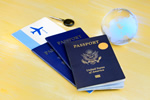Guidance for UK expats on becoming French citizens

Guidance for UK expats on becoming French citizens
The numbers of Britons applying to become French citizens has risen tenfold over the past three years, mostly as a result of Brexit. Securing their futures in their country of choice is now a priority, but French bureaucracy is a tough nut to crack, to the extent that many who’d like to apply are put off by the seemingly illogical requirements and confusion regarding the process itself. According to a French immigration advice consultant, there’s no rush right now, but those still concerned might not agree.
The facts at present suggest the majority of rights now held will continue to apply but, for those who value European Union citizenship’s right to free movement, becoming a French citizen seems inevitable. The same consultant told local media she’d not had a citizenship application from a UK expat during the past two decades, adding that for those wishing to go down this route, it’s actually not that expensive. Those who wish to apply, she said, should certainly do so by first contacting their designated prefecture.
The majority of long-stay British expats will qualify as they’ve been living in the country for the required five years. For those who’ve completed post-graduate courses at a French university, the qualifying years are reduced to two. Expats married to French nationals must prove four years’ married life, even if they’re not living in France at the time of the application. Speaking French at an acceptable standard and having adequate knowledge of French history, culture and politics as well as having integrated into the French lifestyle are also requirements, as is a clean criminal record and proof of a job or other income.
The French government website is the place to check out the long list of required documentation, some of which will need to be officially translated. An acceptable command of French is at the ‘intermediate level’ which includes basic written texts on selected topics. The application needs to be justified, involving ensuring your application is being made for the right reasons, and the total cost shouldn’t exceed €500.The bad news is that applications are taking between 18 months and two years to process, and won’t be getting any faster as no new civil service staff are to be employed.
Related Stories:
- Expats find peace in the covid-19 refuge of Dahab town - July 20, 2020
- Expats in Malaysia still banned from overseas travel - July 17, 2020
- Asian tiger economies reach out to expats in Hong Kong - July 16, 2020
- China hits its expats with 45 per cent tax on overseas earnings - July 15, 2020
- Foreigners and expats condemn Thailand attractions dual pricing - July 14, 2020
- Local French communities mourning the Brexit loss of Brit expat councillors and voters - July 13, 2020
Latest News:
- Tips on a trouble-free relocation as an expat overseas - July 20, 2020
- Expats find peace in the covid-19 refuge of Dahab town - July 20, 2020
- Is Kuwaitization the unintended result of the oil price crash? - July 20, 2020
- Expats unhappy abut changes to Korean points-based visa system - July 17, 2020
- Chiang Mai and Bangkok no longer bargain locations for expats - July 17, 2020
- Expats in Malaysia still banned from overseas travel - July 17, 2020
- Vietnam welcomes expats to its safe, affordable lifestyle - July 16, 2020
- Asian tiger economies reach out to expats in Hong Kong - July 16, 2020
- HSBC Asia to cut back on internal expat relocations - July 16, 2020
- Tips on integrating for newly-arrived expats - July 15, 2020


